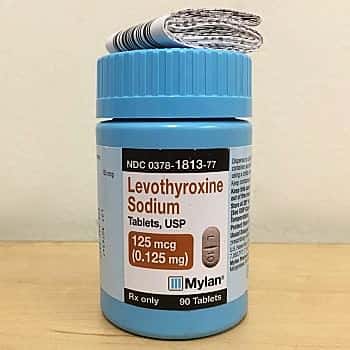
Although the thyroid gland is small, it is important. Thyroid hormones affect every organ system. As a consequence, thyroid problems may show up in nondescript symptoms such as fatigue, clumsiness, constipation or depression. Such nonspecific complaints make it more difficult to diagnose a thyroid imbalance. Occasionally, though, a person develops a less general symptom, one that could point a physician in the right direction.
Puffy Eyelids and Swollen Fingers:
Q. Most mornings I awake with extremely puffy eyelids; often my fingers are swollen as well. It takes several hours for this to recede, and the heaviness of my eyelids makes me feel very tired.
My doctor prescribed a diuretic that I take occasionally for the swelling. I worry that I will lose important minerals with this treatment. Is there another alternative?
Controlling dietary factors does not affect the swelling. What could be causing it? I am physically active and maintain a nutritious diet.
A. Ask your doctor to test your thyroid function. Puffy eyelids and swollen hands and feet can be symptoms of an underactive thyroid gland. Plastic surgeons may refer to the eyelids as “festoons” or “secondary bags” (Klatsky & Manson, Annals of Plastic Surgery, May 1992). When the underlying hypothyroidism is diagnosed and corrected, many patients no longer needed their eyelids lifted.
Fatigue as a Symptom of Thyroid Problems:
In addition to puffy eyelids, your tiredness is an important cue. Fatigue is one of the most common signals that the gland is not working well. Many people do not realize that high cholesterol or depression could also be symptoms of hypothyroidism. In some cases, people end up taking drugs for those conditions rather than managing the thyroid problems that are responsible.
Hypothyroidism can impair cardiovascular health (Udovcic et al, Methodist Debakey Cardiovascular Journal, Apr-Jun 2017). Consequently, appropriate treatment is crucial.
The Guide to Thyroid Hormones we are sending you outlines many other symptoms of low thyroid activity as well as medicines that may affect thyroid test results. It also describes the treatments for low thyroid. Some people do better when the short-acting T3 hormone is added to the standard T4 (levothyroxine) treatment.
Revised 8/7/17

